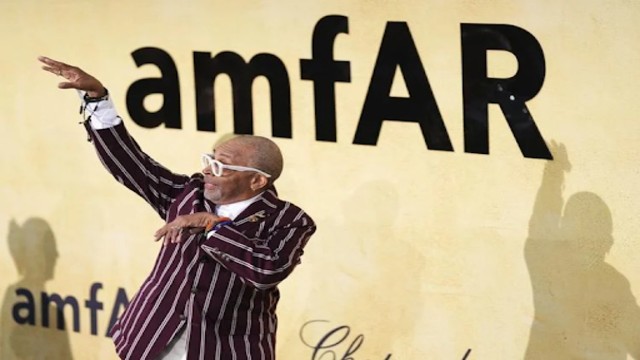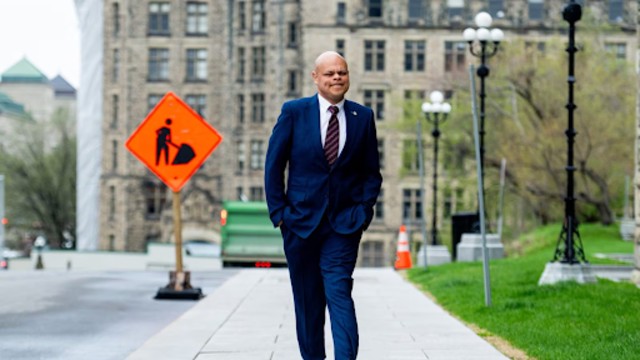
In Bangkok, Thailand, Naphat Krutthai, a transgender man, and Rasithaya Jindasri, an LGBTQ partner, were spotted assisting each other in choosing clothes on Tuesday, December 5, 2023. The Thai Parliament is scheduled to discuss a significant legislative proposal on Thursday, December 21, which, if passed, would mark a historic moment by allowing members of the LGBTQ+ community to legally marry. The final draft bill, endorsed by the cabinet, is set to undergo parliamentary debate. (Photo credit: AP Photo/Sakchai Lalit)
Bangkok, Thailand – After eight years of commitment, Naphat Krutthai and Rasithaya Jindasri are considering taking their relationship to the next level. The couple, comprising Naphat, a transgender man, and Rasithaya, a woman, explored vibrant garments in a Siam Square clothing store, discussing their impending wedding. The excitement arises as Thailand's Parliament gears up for a pivotal debate on Thursday, examining a Cabinet-endorsed draft bill. If passed, this legislation would mark a groundbreaking move, enabling LGBTQ+ community members to legally marry.
The proposed amendment aims to revise the Civil and Commercial Code, substituting "men and women" and "husband and wife" with the terms "individuals" and "marriage partners." Prime Minister Srettha Thavisin, in a statement following a Cabinet meeting on Tuesday, assured that the law would confer identical rights to LGBTQ+ couples as enjoyed by heterosexual pairs. Such a development would position Thailand as the first Southeast Asian nation and the third in Asia, after Taiwan and Nepal, to enact such progressive legislation.
Anticipating the legal shift, Naphat, also known as "Jim," expressed his and Rasithaya's eagerness to register their marriage promptly. Beyond the symbolic significance, Naphat, an advocate for transgender rights, emphasized the tangible benefits associated with a marriage certificate. These include crucial aspects like healthcare and inheritance rights that have long eluded LGBTQ+ couples.
Thailand's global reputation for acceptance and inclusivity was underscored by the annual Pride Parade held in downtown Bangkok in June, drawing tens of thousands. However, beneath the celebratory surface, the lived reality for LGBTQ+ individuals in Thailand may be less optimistic, according to Nattipong Boonpuang, a fortune-teller and model. Nattipong, also a member of the recently established Bangkok Gay Men's Chorus, acknowledged that despite positive strides, misconceptions and legal discrimination persisted.
Vitaya Saeng-Aroon, leader of the Bangkok Gay Men's Chorus, emphasized their mission to promote acceptance. While acknowledging improvements, he stressed the ongoing need to dispel misconceptions and address legal discrimination. The chorus, formed around a year ago, sees its role as advocating for fair treatment rather than seeking special privileges.
The struggle for marriage equality in Thailand faced setbacks last year when proposed legal amendments failed to pass before Parliament dissolved for elections. However, optimism has surfaced this year with a new draft bill described by Vitaya as "very progressive." The bill, having garnered general support, awaits multiple parliamentary debates before potential approval, culminating in endorsement by King Maha Vajiralongkorn.
Marriage equality emerged as a prominent topic in the May general election, with both the ruling Pheu Thai party and the opposition's Move Forward party engaging in discussions. Despite potential positive changes, some analysts, like Khemthong Tonsakulrungruang from Chulalongkorn University, view the legal shift as catching up to existing cultural and religious ceremonies within the LGBTQ+ community.
In light of these developments, the government contemplates further steps, potentially amending pension fund laws to recognize all couples. While such changes may hold profound significance for those affected, analysts believe they reflect societal shifts that have been quietly underway for years. As attitudes towards marriage evolve, the legal landscape is poised to align with the cultural reality that has long been present in Thailand.















